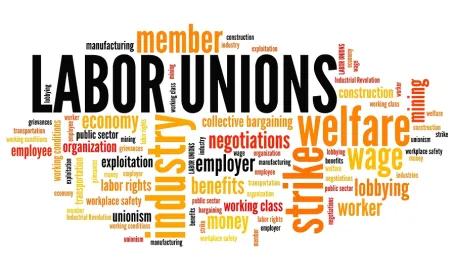On June 14, 2019, the National Labor Relations Board (“NLRB”) issued another favorable decision for employers who might find themselves facing union organizing activities or other types of union solicitation. This latest decision will make it significantly more difficult for unions to solicit employees, strategize with supporters, or engage in similar activities on an employer’s property.
Historically, while federal labor law has recognized employers’ property rights, it has created certain exceptions. For example, the U.S. Supreme Court recognized several decades ago in NLRB v. Babcock & Wilcox Co. that an employer must allow a union to access its property if the union could not otherwise communicate with employees (e.g., if the employees all lived on the property, such as in mining camps or other remote worksites). As another example, the NLRB historically recognized that, if an employer allowed the general public to access its property, the employer could not bar union organizers, so long as they did not create disruptions and generally used the property for its intended purpose. This made it significantly easier for unions to organize employees, meet with supporters, and undertake similar activities at locations such as restaurants, cafes, hospitals, hotels, and similar locations with spaces for meetings or conversations.
In UPMC, 368 NLRB No. 2 (June 14, 2019), the NLRB reinterpreted this exception. The NLRB took the position that, under Babcock, the relevant question is whether a union can access employees without entering the employer’s property. The NLRB reasoned that if a union can access employees in some other way, the union does not have an automatic right to access the employer’s property, even if the property is open to the public. Rather, at this point, the employer simply must treat the union the same as other third parties. Thus, even if an employer makes its property open to the general public, the NLRB recognized that the employer may restrict and manage activities on its property even in a way that might prohibit union solicitation.
Nevertheless, before an employer changes its practices pursuant to UPMC, it should note that this case does not provide employers with unfettered discretion. Rather, an employer that implements a ‘no third party solicitation’ policy should ensure it follows several other important requirements:
-
An employer still may not single out union activity. Rather, any ban on third party solicitors must be non-discriminatory. It will remain unlawful for an employer to prohibit these types of union activities but permit them by other third parties (although it may be permissible to authorize certain types of limited third party solicitation).
-
Even if the employer applies this policy equally against all third party solicitors, it would be unlawful for an employer to implement that policy in response to union organizing activities. So, if an employer wishes to prohibit third party solicitation on its property, it should update its policies proactively, rather than waiting until a union organizing campaign occurs.
-
Federal labor law still prohibits employers from going out of their way to “spy” on union activities (absent limited exceptions). If an employer implements this type of third party solicitation ban, it should ensure that it also refrains from singling out union activities when monitoring for violations and otherwise avoids creating the impression of unlawful surveillance on protected concerted activities.
-
This new decision concerns non-employee solicitation. A different test governs whether an employer may prohibit employees themselves from soliciting for a union on an employer’s property. Employees themselves still have a right to solicit in many situations including, among others, when both employees are on breaks.




 />i
/>i

